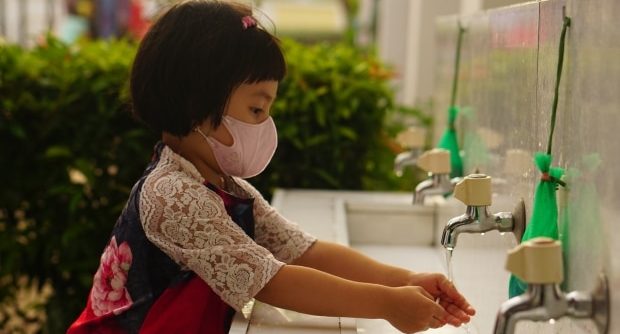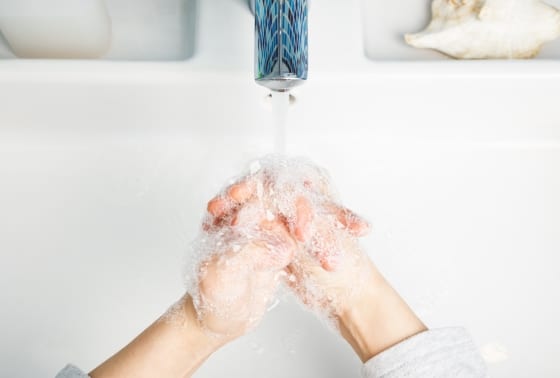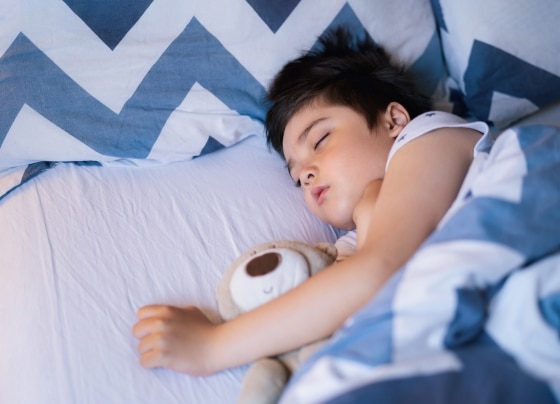With children back in school, they have gotten used to a new routine. It could be your children’s first time back since the pandemic began. Others had to get used to having more students in their classrooms.
It could be your children’s first time attending school in person. COVID-19 changed the world they live in, and they will continue to adapt to these new experiences.
With that said, the Delta Variant has become another recent health concern. There is still a risk for unvaccinated people to catch COVID-19. Older children are now eligible for the vaccine, but younger children could still be at risk. In-person classrooms are essential, but parents need to take the extra step to protect everyone in their children’s school.
The CDC recommends vaccinations for anyone above the age of 12. But, your children may not be of age to qualify for a vaccine. Per the CDC, all in-person students have to wear masks in school.
Screening tests may also be used to track COVID cases and quarantine students who were exposed or infected. But, your family can continue to follow healthy strategies outside of the classroom.
Here are all the ways to keep your children healthy as the world continues to fight against COVID-19 and COVID-19 variants.
Be Involved With Your Child’s Health
Keep up with your child’s health by bringing them to check-ups and health appointments. These preventative measures keep everyone safe. This doesn’t just apply to COVID-19. If your child is struggling with a health problem unrelated to COVID, it’s crucial to stay on top of it. Pediatric visits protect your child from all infectious, viral, or bacterial diseases.
Pediatricians can also give you basic information about your child’s development. This can include vaccine recommendations and growth milestones. Pediatric health is a great way to practice preventative care. Keep up with your child’s health schedule and make appointments with their pediatrician when it’s recommended.
Practice Basic Hygiene
Parents have heard it all at this point, but it’s one of the most effective preventative measures for children in schools. Teach your child how to wash their hands for 20 seconds.
Get creative by including a recent trendy song that will make it more fun. Encourage them to wash their hands while singing their ABCs or “Twinkle, Twinkle Little Star.” This can be especially effective for older children who want to have more independence with their hygiene.
Remind your children to keep their hands away from their faces, especially while they’re in school. You can’t control what they do while they’re in school, but you can keep an eye on their habits while they’re at home.
This will keep them from wanting to do it in the future.
Prepare Healthy Meals
The good news about your children being in school again is less meal planning. Take the extra time to see if you want to try new, healthier recipes for evening meals. This can be very hard, depending on the size of your family, but the goal is to keep your children strong.
Engage your children in the process by asking them to help you prepare food. Take this as an opportunity to teach them essential life skills.
Also, make sure your children are drinking plenty of water. Healthy children below the age of 8 should drink the same amount of cups as their age.
For example, if your child is six years old, they should drink 6 cups of water a day. Older children should drink the average amount of water recommended to adults (8 cups). Have water bottles available and remind them to take water breaks while they’re home.
Create a Consistent Routine
Your children may have gotten used to a pandemic routine. They could have gotten comfortable with virtual learning. Lack of consistency can stress children out, making it difficult to transition back to school.
No one can control the pandemic, but you can try your best to create another routine. Do it while the school year is brand new, and they’re adjusting to in-person classes.
If you haven’t already, set up a consistent routine that your children can follow. Have a set bedtime that coincides with their school schedule. Have a morning routine set up depending on bagged lunches and how old your children are.
Keep track of their household chores by having them take turns. Try to have dinner ready at a specific time and allow them to have free time between school work.
Continue Social Distancing
Your children may be back to school in person, but there’s still a global pandemic. With a rise in Delta cases, it’s crucial to continue social distancing.
Like quarantine protocol, make sure to stay 6 feet apart from other people when it’s possible. Try to have activities outside if it’s possible and wear masks when you’re indoors. Try your best to make most of your meals from home instead of going out.
As recommended by the CDC, children above the age of 2 will wear masks in school. This applies to teachers, staff, and visitors in K-12 schools. Get your children into the habit of wearing their masks over their noses and mouth.
Remind them to respect their teachers if they are told to do so while in the classroom. Avoid large public gatherings if possible. Order groceries online or by pick-up if your nearest store offers these services.
Get Good Sleep
Make sure your entire family gets enough sleep. New routines can make kids feel uneasy and restless, especially after a long day at school. Set boundaries and talk to your children about their new bedtime routine. It may not be the same as when they attended school at home, and that’s okay.
It may be very similar, but it can be challenging to keep it up without consistency. For older children, make sure they get their homework and chores done before a particular time. Set an exact time when they should be in their pajamas.
Once it’s time to go to bed, work with your children to figure out what they would like to do. For younger children, it may be reading a book with them. For older children, it may be watching one episode of a TV show you both like.
Try to use it as an opportunity to spend quality time with them and check in on their adjustment to school. With that said, once it’s time for sleep, make sure they respect that boundary.
Take Care of Their Mental Health
Check in with your kids often and make sure they’re adjusting to school. On top of that, they may still be dealing with many feelings associated with the pandemic. If that’s the case, be open to talking about these topics.
Fear, emotions, and questions are valid. Be empathetic and understand your child may be dealing with a lot of things. This can lead to outbursts, bad behavior, and behavioral issues.
Many of these obstacles relate to mental health. Intense changes and lack of typical socialization can be complex for children to process. Make sure they’re keeping in touch with loved ones. Be open to questions and say “I love you” often.
Be a positive role model by practicing your advice. Above all, acknowledge and validate your child’s feelings. Bad behavior may not be okay, but it’s natural to have negative emotions.
Try Gentle Parenting Techniques
Gentle parenting is a style of caretaking that focuses less on punishment and more on boundaries. The goal is to find a mutual understanding of empathy, understanding, and respect.
Instead, create a robust system that respects your child as a growing person. This may help them cope with the world around them.
Instead of rules established by the parent, gentle parenting techniques are rooted in choice. This allows the child to practice patience and optimism in their daily routine.
It also prevents a fear-based relationship with their parents. For example, instead of punishing your child for bad behavior, find out why it happened.
Try to work with your child to empathize with their feelings and find out where they may be coming from. This also means allowing children to face a consequence and educating them about why it happened.
Keep Your Child Home if They’re Sick
No matter what’s going on, always keep your child home if you think they’re sick. This is especially important with the recent Delta variant. If your child has a fever, keep them home and get them tested for COVID immediately.
Regardless of whether you or your children were vaccinated, always get your children tested for COVID. This doesn’t mean they have it; it just keeps them safe. This also protects their peers from potential exposure to other infectious diseases.
If your child is diagnosed with COVID, let their school know immediately. Some schools even have a screening system in case of potential outbreaks. This keeps track of who the children were exposed to and if specific individuals need to go into quarantine.
Some may even offer tests on-site that can tell you if your child has COVID immediately. Even if your child ends up with the flu or another treatable infectious illness, keep them at home.
Take Care of Yourself
You’re not a superhero, and you shouldn’t expect yourself to be. You’re only human. Parenting can be a lot, especially during extremely trying times.
Between your job, preparing meals, and more, things can get overwhelming. On top of that, your children’s struggles may make your mental health worse. Trying to juggle all these situations at once can make you feel trapped and isolated.
Even so, you’re not alone in this journey. So many other people are in the same position and trying to take care of themselves positively.
Drink lots of water, move your body in a way that’s comfortable for you, and make sure to eat regular meals. When trying to take care of others too much, these simple things can be easy to forget.
But, you’re also a person that deserves proper self-care. Go easy on yourself and take one day at a time, no matter what.
Enjoy $5 off on the newly released GE contactless forehead thermometer for kids and adults, with limited coupon quantities available. Usually sells for $39.99, with the coupon only $34.99. Get yours today! Don’t miss out on the savings.









